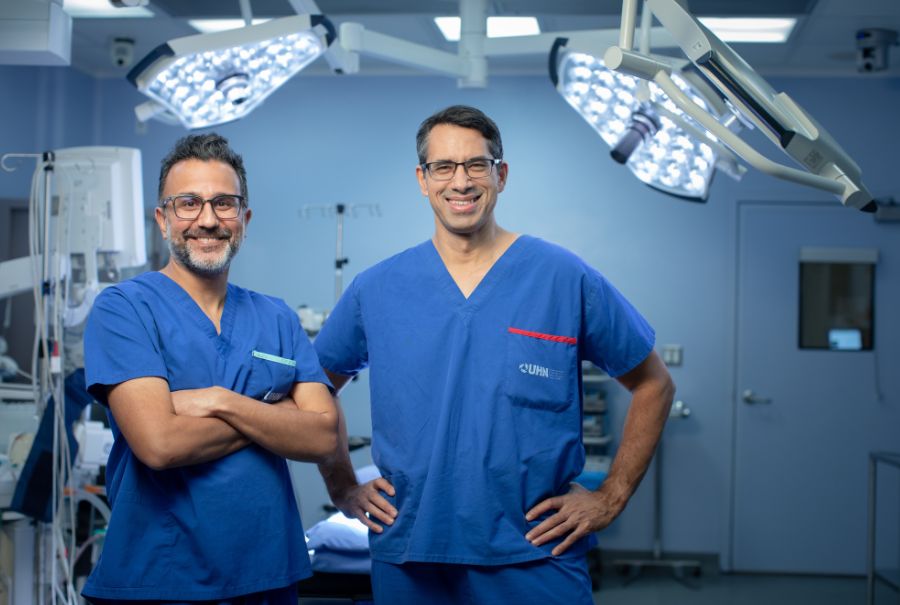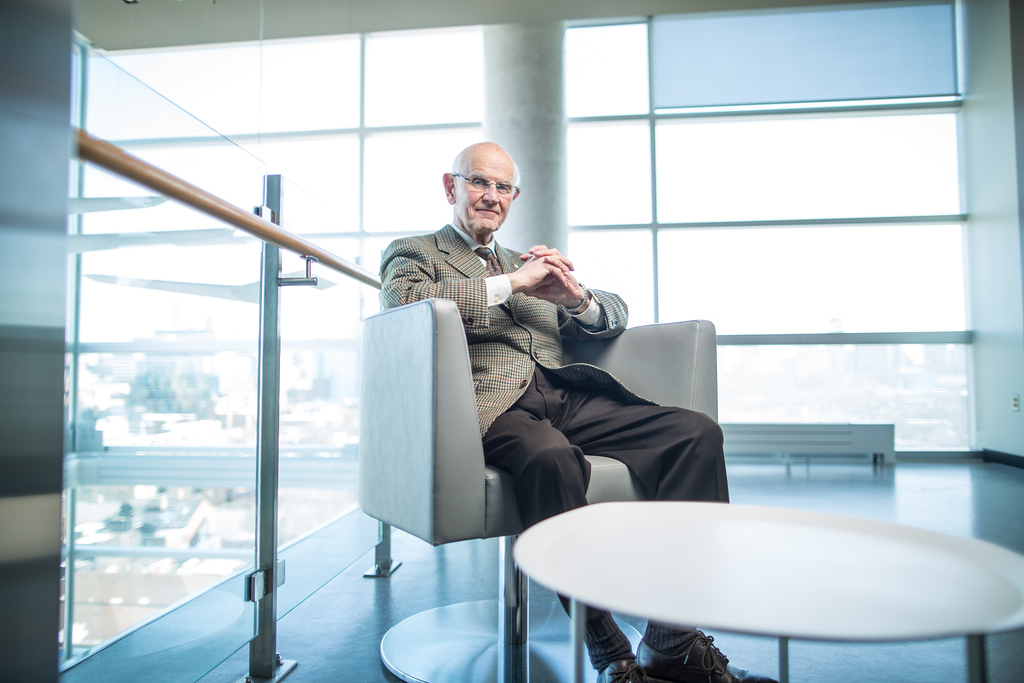Dr. Jaideep Bains, Director of UHN’s Krembil Research Institute, has recently pioneered approaches that use advanced technology platforms to measure changes in brain circuits in response to stress. (Photo: UHN)
How does stress affect our brain circuitry and what are scientists learning about the long-term impacts of stress on the brain?
That was the theme of a recent talk by Dr. Jaideep Bains, Director of UHN’s Krembil Research Institute and a Senior Scientist at UHN’s Krembil Brain Institute.
“Stress has become the malady of our time,” Dr. Bains told the packed audience. “It’s something that’s pervasive in our culture and is unavoidable.
“But at the same time, not all stress is bad. If we didn’t have a stress response, we wouldn’t exist.”
Dr. Bains discussed how we often face stresses that are never ending, “layered on top of each other,” and how stress appears to leave a particular imprint on your brain.
“This means that your brain is remembering your stress and the next time you’re in a stressful situation, or even a non-stressful situation, your brain changes the way you respond.”
More than 700 people attended the hybrid event, in person and online. Many UHN employees braved a snowstorm to watch Dr. Bains’ talk, including senior scientists, administrative staff, trainees and allied health professionals. A lively Q-and-A session followed the live stream.
“It was amazing – so fascinating!” said Marcia Correale, an advanced physiotherapy practitioner with UHN’s Schroeder Arthritis Institute.
Dr. Bains also spoke to CBC Metro Morning radio host Ismaila Alfa about his research looking at how stress can be actually be contagious.
“Stress is not just about the individual. We can transmit information about our stress to others and we have the capacity to detect stress in others,” Dr. Bains told the CBC host. “This transmission likely depends on proximity – both physical and emotional, to the stressed individual.
“So it is thought that you are much more likely to transmit and detect stress with a family member or a close friend, than a stranger.”
Dr. Bains, an internationally recognized neuroscientist, was announced as the new Director of the Krembil Research Institute last fall, after a 20-year career at the University of Calgary, where he led a successful research team and made many important discoveries providing insights into how the brain adapts to stress.
More recently, Dr. Bains has pioneered approaches that use advanced technology platforms to measure changes in brain circuits in response to stress. His team developed a novel system for behavioural assessment and combined this with optogenetic and circuit mapping to link activity in the brain’s stress command neurons to the transmission of stress from one individual to another.
“We’re on a journey to not only understand stress and how to manage it, but to get to a point where we can start to leverage this into new approaches. How can we can collectively shape each other’s behaviours and experiences so that these negative effects that are left by stress, can be erased?”


